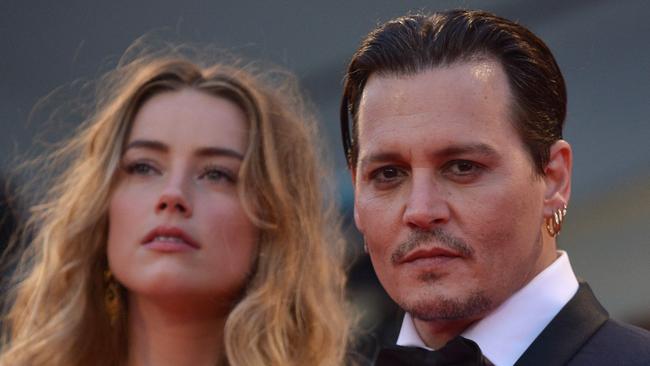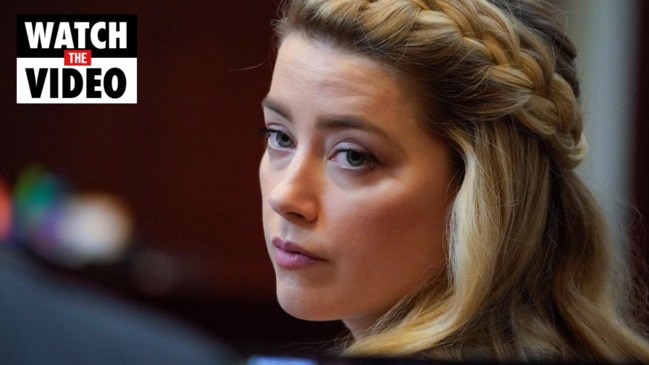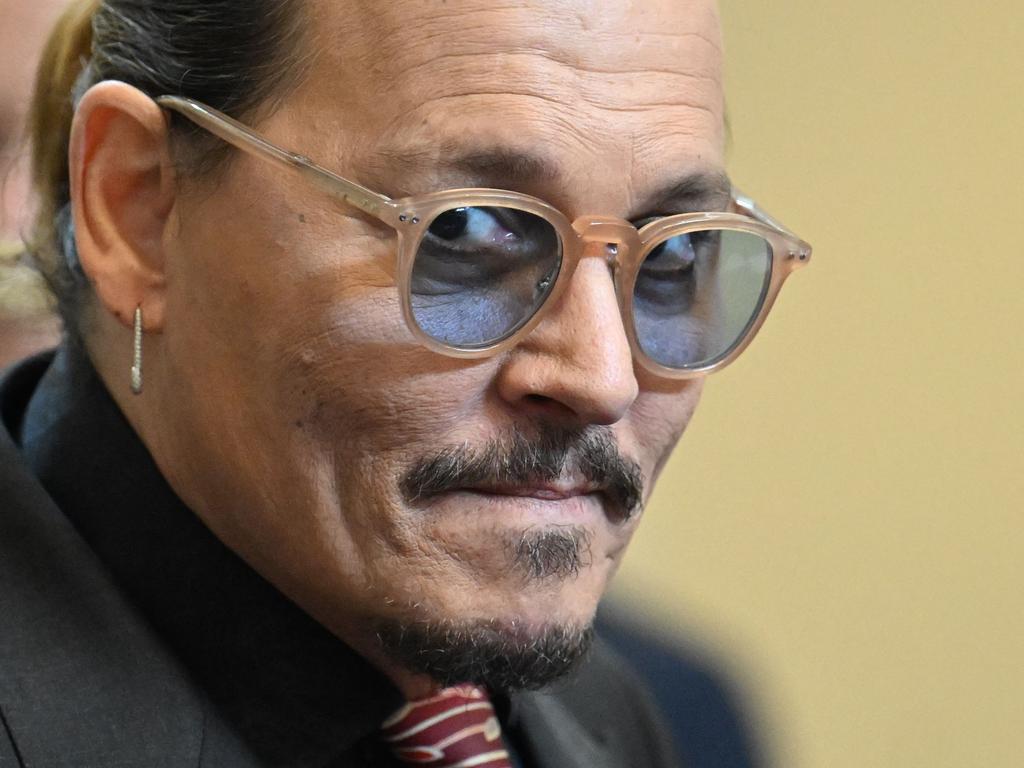MeToo mired in the myth of one-size-fits-all moral justice
Not every woman going public with an allegation of harassment is telling the truth.

Human nature is messy. Some people lie. Some people misconstrue events. Some people have ulterior motives. Some people change their minds. In other words, though it does not form part of the #MeToo narrative, not every woman who has come forward with an allegation of abuse is telling the truth.
This week, a Virginia judge rejected Amber Heard’s attempt to set aside the $14.8m defamation judgment she was ordered to pay for making unfounded allegations of domestic violence against ex-husband Johnny Depp. And long before the media frenzy around this complex and nasty tale, other courts have found that women have lied about sexual assault.
It’s worth recalling the case of Vivienne Dye. More than a decade ago, the former business analyst sued the Commonwealth Bank and its online broking arm, CommSec, for sexual harassment, bullying and discrimination. Dye alleged that when she worked at CommSec between March 2005 and November 2007, two senior employees had sexually harassed her.
In 2012, Federal Court judge Robert Buchanan found that the allegations were “completely fabricated” and “should not have been made”.
The court found that when a senior employee rebuffed her attempts to have a relationship with him, Dye “turned from seeking his attention to a desire to be revenged on him”. The other accused man testified that Dye had told him she was taking out a sexual harassment case against the senior manager and that: “I’m going to get that c …, and I’m going to f..king destroy him and his family.’’ When her friend and confidant refused to help her, she turned on him, claiming he raped her.
The court found Dye was a fantasist and a liar, and fabricated allegations out of a “venomous desire for revenge”, and her account of the alleged abuse had been “progressively altered, re-recorded, edited, polished, embellished and even substantially changed as though it was a novel”. As reported at the time, the judge pointed out the “sad and distressing saga” had involved 94 days of oral hearings and nearly 8000 pages of transcript. Dye was ordered to pay the bank’s legal fees, amounting to $6m.
Our modern zeitgeist has little appetite for turning this wretched saga into a movie. It doesn’t suit the MeToo narrative to hear that some women lie, and that some women try to wreck the careers of innocent men. We seem to prefer our sexual politics neat and simple, featuring a women determined to right a wrong done by a man. And many of those stories deserve to be told. The story of Gretchen Carlson, who accused the late Roger Ailes, former CEO of Fox News, of sexual harassment, has been turned into a TV miniseries – The Loudest Voice – and a film – The Bombshell.
Carlson’s story is pro forma #MeToo. Carlson says she was sexually harassed by Ailes, and then forced into a secret arbitration under a term of her employment contract. She settled the claim for $US20m and signed a nondisclosure agreement as a term of that payout.
Carlson has been on a quest to get rid of forced arbitrations of workplace allegations of sexual assault. Earlier this year, President Joe Biden signed into law the Ending Forced Arbitration of Sexual Assault and Sexual Harassment Act. Next, the former Fox News host wants new laws to regulate NDAs. Many US states, including California and Washington, have banned, or are in the process of legislating to ban or limit, NDAs for sexual harassment claims in the workplace. The US congress is doing the same.
Carlson said: “I’m fighting for nobody else to be silenced … Everyone should be able to own their own truth and their own stories.”
Reality has a way of challenging even the finest-sounding sentiments. Carlson has always been at liberty to tell her story, of owning her own truth. If she returned the $US20m paid to her in return for her signing the NDA, Carlson could have told her “truth”. But contract law precludes her from both receiving $US20m under an NDA, and also speaking about her claims of sexual harassment.
With the Victorian government signalling its intention to be one of the first jurisdictions in this country to regulate NDAs, it pays to think carefully about the grey areas, the nuances that Carlson’s story washes over.
The case against NDAs is that they are used to silence victims, especially women, who are sexually harassed and abused in the workplace. And there is no doubt whatever that NDAs have been used to that end.
While the MeToo movement was, to its credit, the trigger for exposing and jailing Harvey Weinstein, the disgraceful Hollywood mogul who used more than half a dozen NDAs to keep women he abused quiet, not every use of an NDA falls slam-dunk into the Weinstein mould. In fact, calling for the abolition of NDAs is no different to saying we should believe all women. Both claims are wrong, and dangerously so.

NDAs are often used in cases where the facts between two parties are contested; in other words, where an employer is unable to determine what happened between an alleged victim and alleged perpetrator. Where facts are disputed, and evidence is not clear, a company may use an NDA to bridge that gap, allowing for a financial settlement to a complainant and no reputational damage to the alleged perpetrator. Like all compromise outcomes, this may be imperfect, but there are genuine social and policy reasons for enabling disputes to be settled by way of compromise.
Those who think there is something rotten about this scenario, and that NDAs should be abolished, are essentially saying all allegations of this kind made by women are true, and the only purpose of NDAs is to conceal the truth.
The laziness of this thinking is staggering, though unsurprising in the light of the other overheated parts of the #MeToo movement. Zealots, in effect, treat the presumption of innocence, due process and evidentiary burdens as disposable when they interfere with a greater moral cause: the reckoning due to women who claim to be mistreated by men. Mere allegation should be enough to light the pyre, and to extract money from employers.
The #MeToo movement has tried to present a one-size-fits-all story of wrongdoing that relies on three tactics. Keep it simple. Repeat the message. Secure a reckoning. Believing all women and abolishing NDAs is core to that one-size-fits-all strategy.
There are numerous problems with this. First, and most obviously, as we have seen, not all women tell the truth, or at least the whole truth. In cases where the facts are disputed, NDAs serve a vital purpose in allowing a compromise settlement to be reached without the agony and disruption of a trial.
Moreover, over-corrections have a habit of hurting those who need to be protected. Not every woman wants to go to court, or to appear on Four Corners to air allegations of sexual harassment, or both. Some women might prefer to deal with workplace sexual harassment quietly, behind closed doors, receiving a payment to reflect the wrongdoing and getting on with their lives without court proceedings or the glare of media.
Those people, including Carlson and others, who want NDAs abolished, or their use made impractical by allowing a complainant to sign an NDA and later ignore it if they decide to tell their “truth”, are effectively saying that women can’t be trusted to determine what is best for them, that women can’t be trusted to negotiate a settlement that suits them and binds them. That women should not be held to basic contractual principles.
Finally, banning NDAs, or making them useless, will simply compel all such matters to end in a courtroom. Why reach a settlement prior to a final hearing if the complainant can later relitigate the matter, complete with banner headlines and hearsay evidence, in the media? Alleged perpetrators might as well throw the dice in the courtroom where at least the laws of evidence will apply. Settlements will disappear. In which case, the only option for a victim, apart from walking away from an allegation, is to become a combatant in armed warfare in the courts.
Bomb-throwing activists may thrive on simplistic social justice warfare, but turning the workplace into a theatre of war is in nobody else’s interests.








The reckoning from the #MeToo movement was never going to be a simple process of righting wrongs, of exposing the sexual abuse of women in all its forms, and bringing perpetrators to account. If only life were that simple.